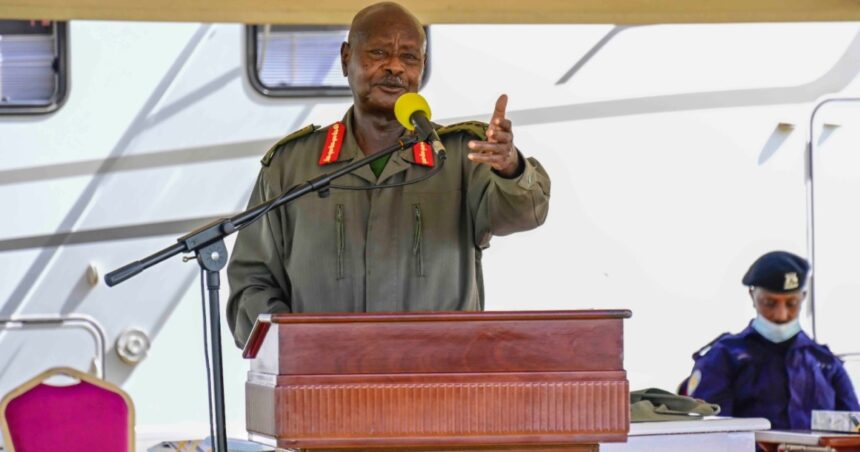In a candid address at the National Leadership Institute in Kyankwanzi, President Yoweri Museveni explained his decision not to block the repeated salary increases for Ugandan MPs, highlighting the unintended shift from voluntarism to careerism within the country’s political landscape.
President Museveni’s remarks bring to light the deep-seated issues of salary disparities and the evolving motivations of public servants in Uganda, raising questions about the impact of these changes on the nation’s governance and public service ethos.
Speaking to ministers, permanent secretaries, and top brass of the ruling NRM party at the Public Service Leaders’ Introspection Retreat at the National Leadership Institute (Nali) in Kyankwanzi, President Yoweri Museveni shed light on the controversial salary increases for Ugandan MPs.
Despite public outcry over the MPs’ hefty earnings in a country where many government employees earn minimal wages, Museveni revealed his reasons for not intervening.
Ugandan MPs, determined by the Parliamentary Commission led by the Speaker of Parliament, have seen their salaries and allowances rise consistently since Museveni assumed power in 1986. Currently, MPs earn up to Shs35 million in salary and allowances, with a significant portion concealed as various allowances.
This includes a monthly salary of Shs11 million (Shs6.2 million after taxes), along with substantial allowances for housing, constituency support, town running, and fuel, totaling millions more.
Museveni contrasted this with the early days of his presidency, when UPDF officers, fresh from the 1981-86 NRA bush war, were content with low pay as they focused on improving the economy.
He lamented that the MPs’ decision to increase their salaries marked a departure from the spirit of voluntarism and a move towards careerism.
“The only mistake was by elements in the Parliament who distorted our historical movement by paying themselves high salaries. This distorted our strategy of voluntarism instead of careerism and mercenarism. They have now realized their mistakes,” Museveni told the gathering.
He further emphasized that no matter how high the salaries are, they cannot sufficiently run a constituency, advocating instead for collective efforts through programs like the Parish Development Model (PDM), Emyooga, and free education in government schools.
Museveni’s comments have sparked a renewed debate on the motivations and responsibilities of public servants in Uganda.
While the MPs’ salary increases have been justified as necessary for effective representation and service delivery, critics argue that such high compensation fosters a culture of self-interest rather than public service.
As Uganda grapples with these issues, Museveni’s call for a return to the values of voluntarism and collective effort resonates as a plea for a more equitable and service-oriented approach to governance.

